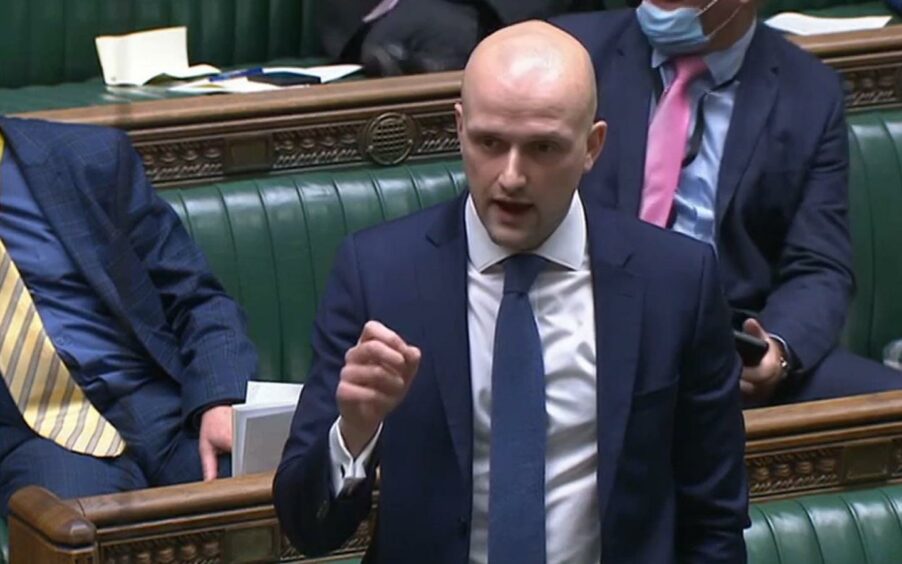
The SNP has called for a broad-based windfall tax on ‘excess profits’ of major companies, including the energy sector, to help ease the cost of living crisis.
In an Opposition Day motion scheduled for Wednesday March 16, the party will lead a debate calling on the UK Government to scrap VAT on energy bills, and to implement a windfall tax on companies which are benefiting from “significantly increased profits” as a result of the pandemic or the current international disruption caused by Russia’s invasion of Ukraine.
The broad-based windfall tax is aimed at Amazon and other large retailers, as well as energy companies, according to the SNP’s Business, Energy and Industrial Strategy spokesperson Stephen Flynn MP.
Mr Flynn said this would ensure that all major companies who have made excessive profits during the Covid pandemic and energy crisis can now “shoulder the burden” faced by millions of families.
The motion also demands the scrappage of the energy bill rebate scheme.
The measures would fund a “comprehensive package of support” for families, including emergency cash payments for households, to tackle the rising cost of living, the party said.
It cited Institute of Fiscal Studies analysis that suggests households are on course to be £800 worse off this year as a result of spiralling costs.
The debate comes just one week before the government’s spring budget. Mr Flynn said it was “absolutely essential that the Chancellor stops making excuses and delivers a comprehensive package of support without further delay.”
He added: “Other countries across Europe are already taking meaningful action to support people. It’s time the UK government finally caught up with our European neighbours and used the reserved powers it stubbornly refuses to devolve to Scotland.
“The SNP is calling for a broad-based windfall tax on all major companies that have made excessive profits during the pandemic and energy crisis. It is only right that companies making these huge profits shoulder the burden that families face.
“This must be a balanced approach across companies, which recognises investment in communities, rather than the ill-considered smash-and-grab on the north east of Scotland proposed by others.”
‘Irreparable damage’
A potential windfall tax on North Sea oil companies has also been mooted by Labour and by campaigners in the wake of the record profits reported across the sector.
However, oil and gas trade body Offshore Energies UK (OEUK) warned last week that this could cause “irreparable damage” to the industry and harm investment in domestic supply.
OEUK said the recent profits of oil and gas operators is not a fair reflection of conditions for the industry – which has been hit with two huge downturns since 2014 – and that capital expenditure by the industry has fallen by more than 90% since 2014.
“If that lack of investment in platforms, pipelines and other infrastructure, were to continue, then production would decline in coming years – just when we most need our own oil and gas supplies,” added chief executive Deirdre Michie.
Recommended for you

 © Supplied by Parliament.tv
© Supplied by Parliament.tv